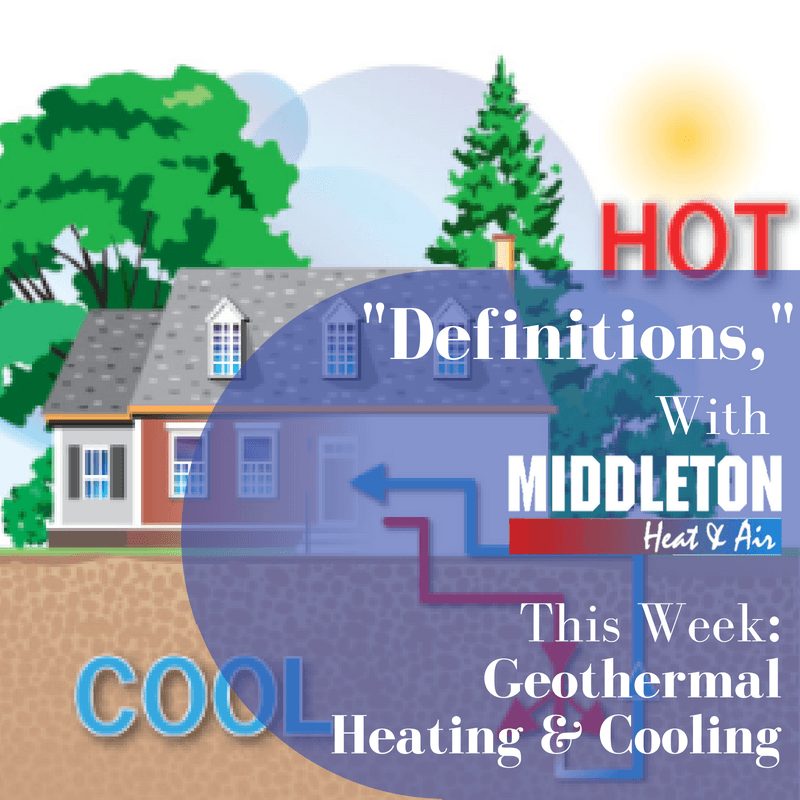Definition Series – Geothermal Heating and Cooling

In the world of HVAC, we have our own vocabulary that we use every day, but sometimes the words we use don’t translate to our customers. In this blog series, we will cover some of this terminology to help you understand what we mean and why these terms are important to your HVAC maintenance and installation.
This week, we define the term Geothermal Heating and Cooling and explain why it might be important to you.
Definition:
A Geothermal Heat Pump, also known as a ground source heat pump, is a central heating system that transfers heat to (or from) the ground into (or out of) your home. It basically uses the earth as a heat source in the winter or a heat sink in the summer as it harvests the heat absorbed at the Earth’s surface from solar energy. This means that these systems are vastly more effective because they simply move existing heat from one place to another, almost in the same way a refrigerator removes heat from the food inside and moves it out.
Why is This Important?
The ground absorbs nearly half the solar energy our planet receives, so approximately twenty feet below the surface, the temperature remains steady at approximately 50 to 60 degrees Fahrenheit. This means that in the winter a geothermal system can access this steady temperature to heat a home for very little energy cost. For the summer, it also uses remarkably less energy than a typical HVAC system to cool, saving the homeowner anywhere from 30 to 60 percent on utility costs. Because a geothermal system is better for the environment, there are also many federal, state, and local financing, rebates, and incentives programs available for homeowners who decide to make the switch.
The Pros and the Cons:
There are very few cons and many pros to consider when deciding whether or not to make the switch to geothermal heating and cooling. The biggest con of a geothermal system is the initial cost, which is significantly more expensive than a traditional unit. A typical installation cost for one of these systems can run anywhere from $10,000 to $30,000, depending on the size of your home and where the system can be placed.
Although these geothermal systems can be expensive, their expected life-span is approximately 25 years, and you can recoup your system expenses within 4 to 15 years in the savings you receive from your utility costs. Traditional heating and cooling systems are only expected to last around 10 to 15 years and usually account for up to 27 percent of utility costs. In addition, the geothermal system is quieter than a traditional system, they are very low maintenance, and they are better for the environment because they don’t emit any greenhouse gasses such as carbon monoxide or carbon dioxide.
If you are interested in having a geothermal heating and cooling system installed in your home, Middleton can help with that! Contact us online or by phone at 1-800-404-0371, today to speak with a Comfort Specialist and learn more details.
